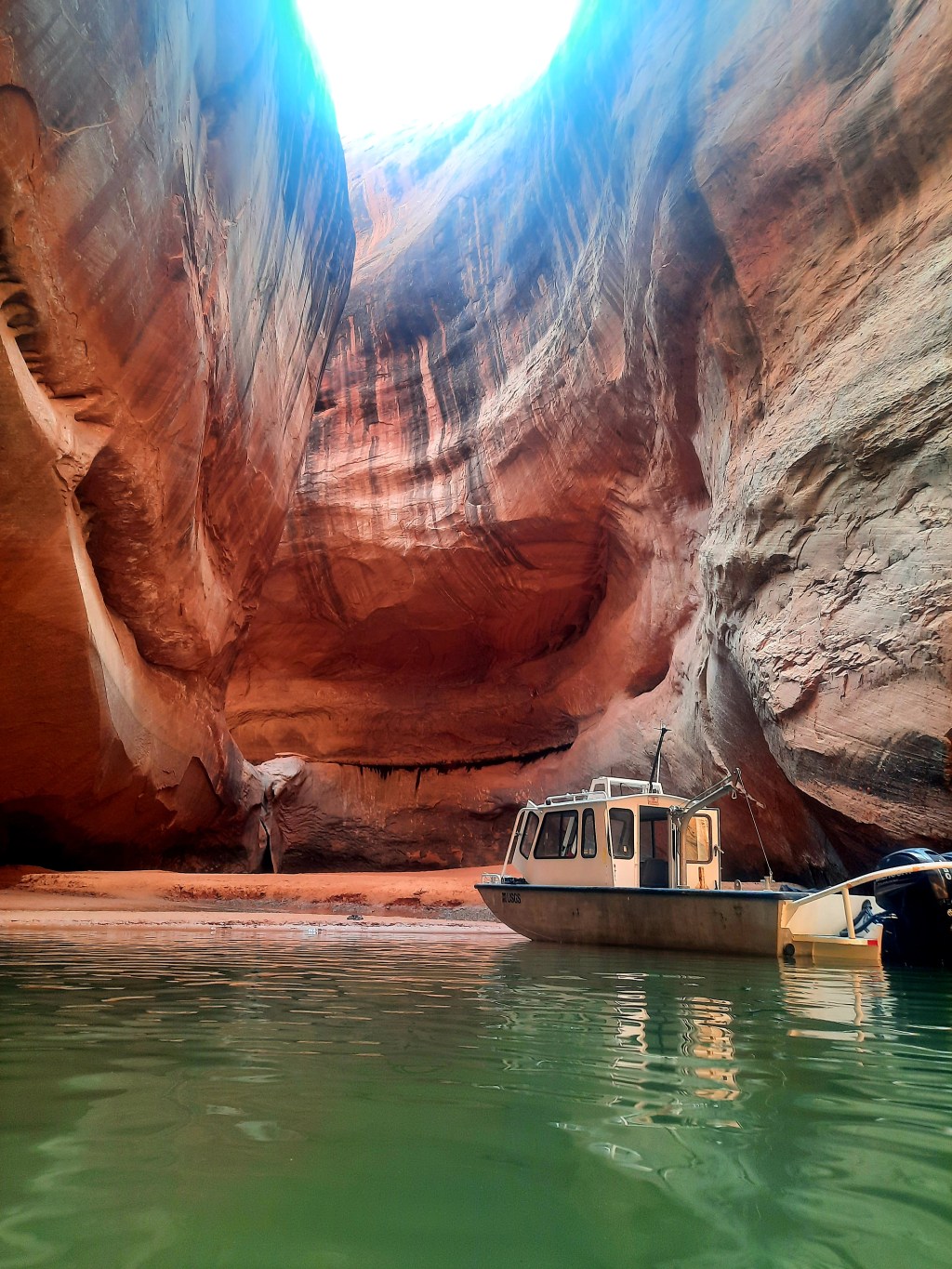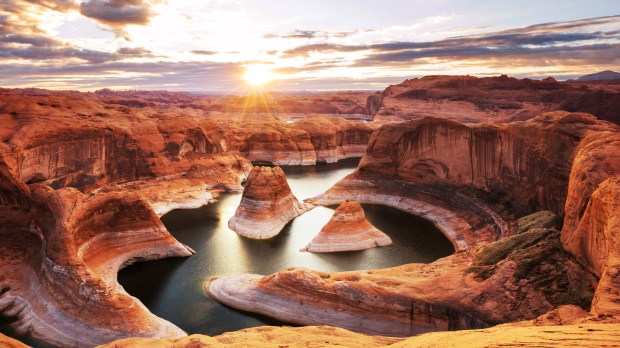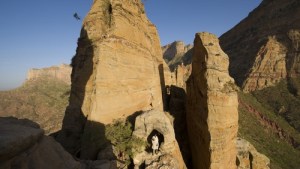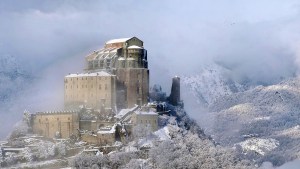Lenten Campaign 2025
This content is free of charge, as are all our articles.
Support us with a donation that is tax-deductible and enable us to continue to reach millions of readers.
Christian monastic, eremitic life was born in the Egyptian desert around the year 270. Whereas Paul of Thebes was the first to venture into the desert, it was St. Anthony the Great who turned it into a movement. Those who followed him soon formed a kind of alternate Christian society — the famous Desert Fathers. It was one of these Fathers, St. Pachomius, who organized the first Christian monastic communities under the authority of a figure known as an “abbot” — a word derived from the Aramaic “abba,” father. Some of these early monks lived in caves. Some of them dug caves in cliffs and used them as churches – as is still done today in some areas in Ethiopia. What none of them could have even dreamed of is celebrating Mass in a natural “cathedral” in the middle of the desert.
The Colorado river is one of the main rivers in the American southwest and northern Mexico. It crosses Colorado, Utah, Arizona, Nevada, and California in the U.S., and Baja California and Sonora in Mexico until it reaches the Gulf. A dam (the Glem Canyon Dam) was built in 1956, forming Lake Powell – one of the largest manmade water reservoirs in North America.
The project was highly controversial. The dam, on the one hand, was needed to supply a booming desert population with sufficient water and electricity. On the other, these facilities came at the cost of drowning important archaeological sites, plant and animal habitats, and unique geological formations under hundreds of feet of water. One of them is the Cathedral in the Desert.

The Cathedral in the Desert spent most of the 20th century underwater. It is referred to as a “cathedral” because it is “church-like in its elongated, slender shape with soaring walls that reveal only a sliver of sky.” As read in the article published by Atlas Obscura, the place has recently re-emerged, as the waters of the lake recede: “it’s a reborn marvel of natural forces first snatched from, and then reintroduced to, visitors in need of some geological sanctuary.”
The “cathedral” was a tourist attraction back in 1954, only years before the construction of the dam began. It was finally submerged in 1963, only to re-emerge briefly in 2005 when the waters of the lake dropped 150 feet from its peak height. As the lake levels dropped again in 2019, now the Cathedral had reemerged for good. It can be visited by boat or kayak.



